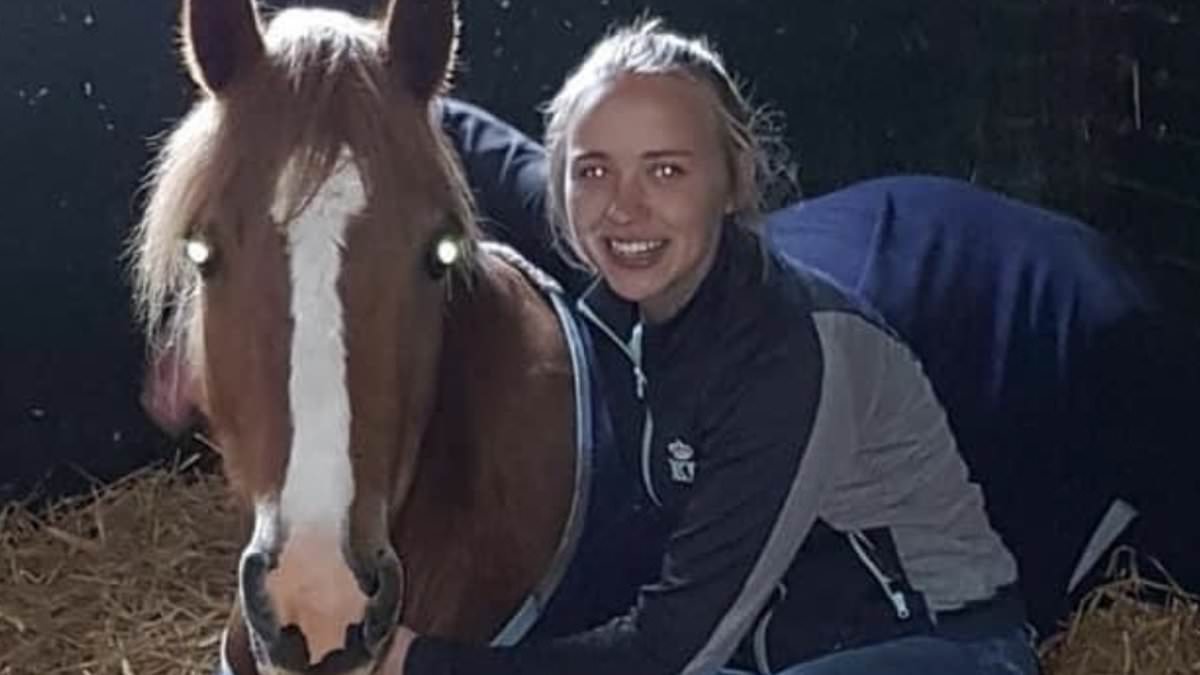A woman who complained about stomach pain for two years was dropped off her GP surgery’s register only to later be diagnosed with an incurable form of cancer.
Stephanie Thomas, 28, began experiencing the unusual sensations around 2021/22.
Strong painkillers were prescribed by her GP initially at Home Farm Medical Centre in Ellesmere Port, who attributed the symptoms to Fowler’s Syndrome which Ms Thomas had been diagnosed with years earlier.
But her condition only worsened and she begged for more relief – only to be subsequently removed from the patient list.
Ms Thomas’s mother, Stacey, said: ‘Stephanie had been with the practice since birth, this left her having to register with a new practice and start again to try and explain her worry for her health.
‘Her new GP tried lots of different treatments to try and treat Steph’s symptoms until September when things were so bad she attended A&E, to yet again be discharged and told it was her condition.’
It wasn’t until Ms Thomas’s third visit to the Countess of Chester Hospital A&E in October, where she requested a second opinion, that she finally underwent CT scans and biopsies.
Her worst fears were confirmed and she was diagnosed with aggressive stage four cancer, the Liverpool Echo reports.
Fowler’s Syndrome is a rare urinary disease which affects around one in a million women in the UK.
It causes difficulty in passing urine and urinary retention due to the bladder’s muscles.
Fowler’s affects women in their twenties and thirties and up to half the patients affected have polycystic ovaries.
Sufferers may find they are unable to pass urine normally and need their bladders to be drained via a catheter.
What are the symptoms?
Symptoms vary from being unable to hold any urine to being unable to empty the bladder fully.
Urinary infections may be a problem for women suffering from Fowlers Syndrome due to the bladder not emptying properly. Some women may also experience back and suprapubic pain.
The cause remains unknown and is still being researched.
The cancer had already progressed, affecting her stomach, spleen, pelvis, ovaries, and small bowel, and was deemed incurable. Stephanie, once a keen horse rider, is currently undergoing chemotherapy at the Clatterbridge Cancer Centre in Liverpool to prevent further spread.
Her mother, from Ellesmere Port, said: ‘If Stephanie had been listened to maybe her cancer would have been detected sooner with a better outcome.’
Hope Farm Medical Centre declined to comment, citing patient confidentiality. However, a letter sent to Stephanie from the practice in May 2023, reportedly warned that she would be removed from the practice due to her repeated requests for painkillers.
It stated: ‘This is an action which is taken when there have been repeated early requests for medication. We are also going to be aiming to reduce your morphine by 5ml every two weeks with the eventual aim to stop this completely.
‘If you continue to request prescriptions early after this letter this will result in your removal from the GP practice list due to a breakdown in GP/patient relationship.’
Fowler’s Syndrome, a debilitating and rare bladder disorder mainly affecting women in their twenties and thirties, is known to cause abdominal pain similar to what Stephanie was experiencing. However, Stacey said her daughter ‘felt her symptoms had changed… and suggestions of her symptoms being due to something else going on being the cause of this were brushed off’.
Ms Thomas’s best friend Leah Woods said: ‘I am devastated. It’s a lot to take in. I knew Stephanie was in hospital, but receiving that message saying “I’ve been diagnosed with cancer and it’s spread”, it’s heart-breaking. It’s the not knowing as well. With the primary source of the cancer being unknown, we still don’t feel like we’ve got anywhere.’
The 27-year-old added: ‘They say they can do chemo to try and stop the cancer spreading. But it’s incurable and they can’t operate. We don’t know how long she has. Because the primary source of the cancer is unknown, they can’t give a life expectancy.’
An online fundraiser, started by Ms Woods, hopes to raise enough money to support Stephanie in her own home – as she is currently in the care of a hospice.
She said: ‘I think if Stephanie was listened to two to three years ago, it could have been a different outcome. I feel like young people especially are brushed under the carpet when they go to the doctors with any kind of symptoms. I feel like young people need to be listened to more.’
